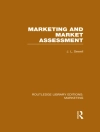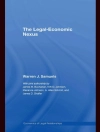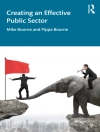Abul A’la Mawdudi laid down the foundations of modern Islamic economics. Drawing upon Islamic sources, Mawdudi spelled out a new paradigm for economic analysis and policy, wherein economic pursuits take place in the context of moral values and are directed towards the achievement of personal and social objectives. Integral to this approach is the concept of an interest-free economy that attempts to make efficiency and equity inseparable and interdependent. The creation and distribution of wealth thus become instrumental in promoting individual and social wellbeing, opening up pathways to development, social justice, and human welfare. This comprehensive anthology collects all of his major writings and provides a historic as well as an essential introduction to Islamic economics.
Abul A’la Mawdudi (1903-1979) was a leading Muslim intellectual and a chief architect of the Islamic revival in the twentieth century. In 1941 he founded Jama’at-i-Islami, a political party in Pakistan, which he led until 1972. He authored more than a hundred works on Islam, both popular and scholarly, and his writings have been translated into some forty languages.
Daftar Isi
Foreword: Khurshid Ahmad
Translator’s Note
Author’s Preface
Introduction: Sayyid Abul A‘la Mawdudi
Part One: The Islamic Concept of Economic Wellbeing
Chapter 1: Mankind’s Economic Problems and their Islamic Solutions
Chapter 2: Economic Teachings of the Qur’an
Chapter 3: The Differences between Islam and Capitalism
Chapter 4: The Economic Philosophy of Islam
Chapter 5: The Principles and Objectives of Islam’s Economic System
Chapter 6: Some Principles of Economic Life
Part Two: The Economic System of Islam: Some Basic Features
Chapter 7: The Question of Land Ownership
Chapter 8: The Question of Interest
Chapter 9: Zakah in Theory and Practice
Chapter 10: Islam and Social Justice
Chapter 11: Issues of Labour, Insurance and Price Control
Chapter 12: Recodification of the Economics Laws of Islam
Index
Tentang Penulis
Abul A’la Mawdudi (1903-1979), one of the chief architects and leaders of the contemporary Islamic resurgence, is the most outstanding Islamic thinker and writer of our time. In 1941 he founded Jamaat Islami of which he remained Amir (Chief) until 1972 and which is one of the prominent parties of Pakistan. He authored more than a hundred works on Islam, both scholarly and popular, and his writings have been translated into forty languages.












